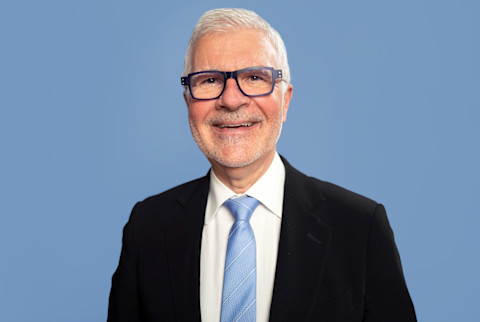How Much Fiber Do You Really Need? Plus, A Cardiologist's 4 Favorite Sources

Fiber—such an unassuming word, but it carries tons of weight in the well-being space. After all, a fiber-loaded diet has been associated with optimal colon health1, digestion2, metabolic health3, and immune health. And along with fiber comes the oft-asked question: How much do I need to reap the health benefits?
Before we go any further: There isn't one magic fiber number (it differs for everyone!), although plenty of experts recommend going above and beyond the recommended daily intake (25 grams for women and 38 grams for men). One of those experts happens to be Steven Gundry, M.D.: On this episode of the mindbodygreen podcast, the cardiologist and New York Times bestselling author offers his take on how much fiber you need, as well as his favorite fiber-rich sources.
How much fiber do you really need?
"Typical hunter-gatherers probably consumed 130 to 150 grams of fiber a day," says Gundry. In fact, researchers who studied the Hadza population in northern Tanzania (who are considered one of the last traditional hunter-gatherer tribes) found that they consumed around 150 grams of fiber daily4 and had thriving, diverse gut microbiomes—and among the Hadza population, chronic disease is rare.
Of course, 150 grams is a much, much higher quota than the recommended 25 to 38, and that doesn't mean you absolutely have to meet this threshold. But, says Gundry, "The average American, if you're lucky is getting maybe 20 grams of fiber5." There's no magic number, as we noted above, but Gundry (and other health authorities) would recommend upping your intake to better your chances of overall health. Essentially: Think of 25 to 38 grams as a starting point, not a finish line.
Gundry's favorite sources.
However, eating enough fiber is not just about the number of grams—you also want to have a multitude of sources. After all, one reason the Hadza population may have such diverse microbiomes, the researchers note, is because their diets change significantly from season to season—when they run out of resources, they move locations to forage for what's available. That means a diverse diet of plants—and different sources of fiber.
You can find plenty more fiber-rich foods than what's on this list, but here are Gundry's all-time favorites:
- Avocado: "Avocado, believe it or not, has a lot of fiber," says Gundry. Specifically, half of an avo provides 4.6 grams6, and one study even found that daily avocado intake led to7 an increase in microbial diversity.
- Pistachios: While a host of nuts contain a bounty of fiber, "Pistachios go right to No. 1 nut on my list," Gundry says. They also boast significant amounts of melatonin, which is the main reason Gundry loves them for a quick snack: "Melatonin may be the most important antioxidant for mitochondria [health]," he notes.
- Psyllium seeds: "Please try some psyllium seeds," says Gundry. "It's easy to get fiber into you." You'll get 7 grams of fiber per tablespoon, plus it's been shown to promote regularity and help stabilize blood sugar8.
- Flaxseeds: Flaxseeds are wonderful for reaching your fiber goals, as 1 tablespoon of whole flaxseeds contains 2.8 grams. You can buy them pre-ground, but Gundry recommends buying whole flaxseeds and grinding them daily if you can. "The stuff goes rancid very quickly," he notes. "If you do buy the ground-up stuff, buy it out of a refrigerator case and keep it in your refrigerator. That's a little trick."
The takeaway.
How much fiber do you really need? There's no one answer for everyone, but Gundry recommends consuming above the recommended daily amount to better your chance of health benefits. Although, you should also think about your sources of fiber—a diverse range of nutrient-dense plants is key.
8 Sources
- https://link.springer.com/article/10.1007/s11130-016-0529-6
- https://www.tandfonline.com/doi/full/10.1080/10408398.2016.1180501
- https://www.ncbi.nlm.nih.gov/pmc/articles/PMC3257631/
- https://www.nature.com/articles/ncomms4654
- https://www.ncbi.nlm.nih.gov/pmc/articles/PMC6124841/
- https://www.ncbi.nlm.nih.gov/pmc/articles/PMC3664913/
- https://academic.oup.com/jn/advance-article/doi/10.1093/jn/nxaa219/5893497
- https://pubmed.ncbi.nlm.nih.gov/9747644/
